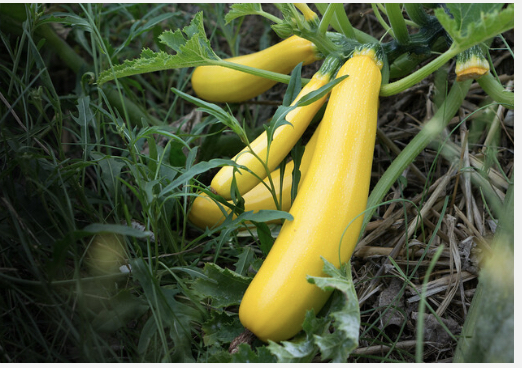“The greatest change can be made even on a small scale, permaculture is all about your gardens and backyards”
Greg Meyer
While climate change is flipping the world’s landscape upside down, to mitigate the effect, some Australians are seeking refuge from it by adopting a much more sustainable and greener approach called permaculture, which is gradually making its way to people’s backyards and farms.
Greg Meyer, a 74-year-old advocate for sustainable living and director of the Permaculture Sydney West, worries about the abrupt climate change. Still, he is passionate about passing on his knowledge to the next generation and believes it is the only and most effective way to sustain a sustainable environment.
“Permaculture is the way of living in an environment without disrupting it. It is the way to sustainable living and restoring those natural cycles we have disrupted mainly through our carbon dioxide production,” he said.
He also told Hatch that using permaculture for growing food no matter the scale can give three to five times greater yield than any commercial agricultural method using pesticides, monoculture farming techniques and dramatically modified crops.
“If we keep using these commercial ways that degrade the soil and reduce the yield, then it’s unrealistic to live sustainably,” he said.

For Mr Meyer, the way to a sustainable environment doesn’t start from signing petitions, casting votes, or protesting outside Parliament House for climate change. Still, it starts from the ‘wallet’ for the things we spend our money on.
For him, our spending habits determine what tomorrow will look like for Australia and shape the rest of the world, but he laments that he would probably not see the desired change in his lifetime.
“When you find things that have just one use or made up of a single element, then it’s fragile, you take that one function away, then the whole thing breakdowns.
“Permaculture is all about integrating rather than segregating, hence creating diversity in our gardens that have more than just one purpose that builds the whole environment,” he said.

Permaculture was first conceived and developed in the 1970s by co-workers Bill Mollison and David Holmgren in Australia. Originally the term was a contraction of “Permanent Agriculture”, for that is what it was, the design and implementation of permanent (sustainable) agricultural systems.
It first appeared on the world stage in 1976 in an article in Tasmania’s Organic Farmer and Gardener newsletter and went international in the 1990s.
According to Jo Tonitto, a permaculture design specialist and environment enthusiast, permaculture is a design system centred on three core ethics which are Earth Care, People Care, and Fair Share, creating self-regenerative “edible ecosystems” encompassing both the home and the community to provide for human needs while nurturing our environment at the same time.

Outlined by the founder Bill Mollison, these three ethics are the essence of living sustainably. While two of them, Earth Care and People Care, are widely accepted by the community for what they are, the third one, Fair Share, which remains a bit controversial today, refers to limiting our resource use and population to further the other two principles.
But the main goal is to help all to work toward a future where we all care about ourselves and each other, including non-human populations, to heal and rejuvenate the earth.

Ms Tonitto thinks that in our current COVID crisis, it is the individuals who are going to impact climate change.
“People who have never touched the soil in their lives have suddenly become interested in growing their food and becoming more self-reliant and community.
“Permaculture is quickly moving from being either unknown or radical to being a more accepted lifestyle choice. And every tiny step in the right direction helps.
“Very few will start living off-grid and 100% sustainable – and that’s okay because if millions of people take even one small step in living more sustainably, then that becomes one giant leap forward,” she said.
“So instead of telling Mother Nature what to do, I put my ear to the ground and listened intently to everything she had been trying to teach me all along.”
Jo Tonitto
Environmentalists are lately advocating the incorporation of Permaculture as a holistic approach based on ethics and equitable interaction with eco-systems to obtain sustainability.
One prominent name in the field is Geoff Lawton, a world-renowned Permaculture consultant, teacher and designer who emphasises that we need ecosystems designed to produce our food, animal feed, fuel, medicine, and fibres without using fossil fuel technology.
He stressed that the climate crisis must be rooted in social, economic, and ecological justice. In contrast, barriers to solutions are political and social inaction to tackle these global issues.
“By restoring the world’s degraded soils, we can store carbon as soil fertility, heal degraded land, improve water cycles and quality, and produce healthy food and true abundance.
Protection, restoration, and regeneration of ecosystems and communities are the key players to both mitigation and adaptation”, he said.
Loss of biological diversity in agriculture is a growing global problem, especially here. As fewer varieties of species are grown along with the dependence on costly imported agrochemicals, fertilisers, and seeds, agriculture’s genetic heritage would downsize, disrupting the ecosystem and food chains collectively.
As many stark environmental outcomes seep through the abrupt climatic shift, its domino effect would bring the health and economic downturn.
With more exorbitant home insurance rates, higher electric bills, and more blackouts, the outdoor scorching work conditions coupled with frequent heatwaves and lesser rainfalls could become unbearable with more allergies, viruses and other health issues risks to emerging subsequently from melting glaciers that would become unable to repair.


